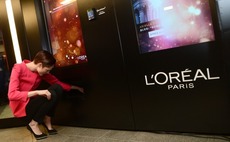
Navis returns for Dome Coffees refill
Having built a strong relationship with the management team at Dome Coffees Australia, Navis Capital Partners was comfortable with the notion of buying the specialty coffee and dining restaurant chain for a second time, 11 years after the first acquisition.
The Malaysia-based buyout firm's first time investment in 2003 was a management buyout worth a reported $20 million. Five years later, Navis exited to Viburnum Funds - with management once again participating - and saw a 3.5x return on its investment. Last week, the PE firm took a majority stake in Dome for an undisclosed sum. The equity commitment is said to be between $50 million and $100 million, although further capital will be provided to support expansion.
"We stayed in touch with the management team after we sold the business. They had done very well and proved to us they are both capable and trustworthy," says Nick Bloy, co-managing partner at Navis. "When Viburnum was considering an exit, management said, ‘Look, we want to work with Navis again if you and Navis can agree a fair price. We don't want to do an IPO or spend time building relationships with other PE firms and strategic investors at this stage."
As a result, the process was not competitive and took little time to complete.
Originally from Western Australia, Dome operates 110 self-owned and franchised outlets in Australia and other parts of the world, including Malaysia, the Philippines and the United Arab Emirates. Over the next five years, it will set up another 25 shops in Australia, pushing into northern parts of the country, and also enter New Zealand.
In addition, the number of outlets in Southeast Asia - currently 32 - will nearly double and there will be 15 more shops in the Middle East. Most of Dome's less than A$200 million ($187 million) in annual revenue comes from Australia, but Bloy expects the rest of the world share to account for 50% eventually.
Styled around a Continental European bistro theme, Dome combines its own specialty coffees with a full food menu. Casual dining accounting for 70% of revenues, which means the business hinges on selling a consumer experience with a coffee concept built into it. This contrasts the likes of Starbucks where the model is based on the frequency of sales over a period of time.
As a result, Dome is in the process of creating zones for different customers in order to maximize the user experience. The principal challenge the company faces is finding store managers who understand and can execute this strategy. While Navis has traditionally exited companies to strategic buyers, Bloy sees Dome as a potential IPO candidate within five years.
"Historically, we have never targeted the IPO market, but Dome could be a very good IPO story in a five years' time - asset-light, highly cash generative with plenty of growth still to play for," adds Bloy.
Latest News
Asian GPs slow implementation of ESG policies - survey
Asia-based private equity firms are assigning more dedicated resources to environment, social, and governance (ESG) programmes, but policy changes have slowed in the past 12 months, in part due to concerns raised internally and by LPs, according to a...
Singapore fintech start-up LXA gets $10m seed round
New Enterprise Associates (NEA) has led a USD 10m seed round for Singapore’s LXA, a financial technology start-up launched by a former Asia senior executive at The Blackstone Group.
India's InCred announces $60m round, claims unicorn status
Indian non-bank lender InCred Financial Services said it has received INR 5bn (USD 60m) at a valuation of at least USD 1bn from unnamed investors including “a global private equity fund.”
Insight leads $50m round for Australia's Roller
Insight Partners has led a USD 50m round for Australia’s Roller, a venue management software provider specializing in family fun parks.







